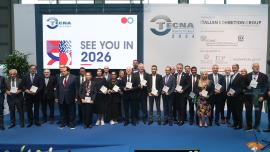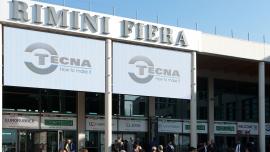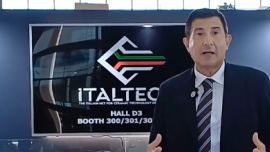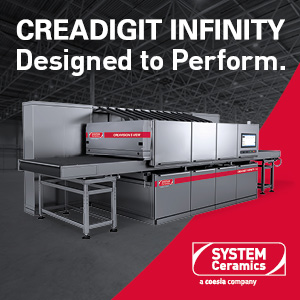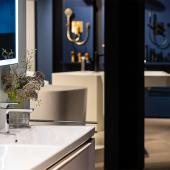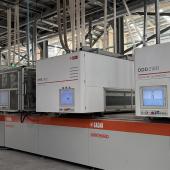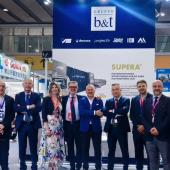Acimac promotes industrial process simulator for the ceramic sector
The prototype, developed in collaboration with Bi-Rex, Fondazione Golinelli, G-Lab and the Enrico Fermi high school, was presented at Tecna.
Acimac, the Italian Ceramic Machinery and Equipment Manufacturers’ Association, is promoting a futuristic experimental project that involves developing a virtual industrial process simulator tailored specifically to the ceramic sector. The project is being carried out in collaboration with Bi-Rex, a national competence centre specialising in big data, Fondazione Golinelli and G-Lab, and the Enrico Fermi technical and industrial high school in Modena.
The project is based on the Golinelli LiVE-Live Virtual Experience VR learning technology developed by Fondazione Golinelli, which harnesses the immersive power of VR for use in educational applications.
This is the first time that private and public organisations have collaborated to develop a simulator of this kind for the ceramic industry. Serving as a tool for education and continuous training, it focuses on the manufacturing industry’s most rapidly developing areas, namely STEAM (science, technology, engineering, arts and mathematics), servitization and artificial intelligence.
The project is divided into two stages. The first is a prototyping phase and involves developing 3D and interactive models of machinery with significant educational value to test the simulator’s functionality in technical and vocational schools. The second step, which will take place after the results from the prototyping phase have been obtained, is the actual launch stage and will involve adding new machinery, interactive educational experiences and advanced features to simulate specific production contexts.
The project is supported financially by Acimac and has also received National Recovery and Resilience Plan (NRRP) funding through Bi-Rex. Several Acimac member companies have contributed their expertise in developing the simulator. A team made up of technical directors from these companies together with teachers from the Enrico Fermi high school worked on the configuration and prototyping of machine functions for educational purposes, then sent the technical characteristics and parameters of the selected machines to G-Lab for the supply of 3D models. The technical team is responsible for defining the project requirements, overseeing the beta testing phase and managing feedback collection and communication. The students are actively involved in every stage of the project.
The simulator displays a complete plant environment, with a special focus on two stages: kiln, drying and firing, which focuses on firing parameters (such as curve and flow) in relation to the finished product; and digital/colour printing.
The project was unveiled at Tecna, the world’s foremost exhibition of ceramic technologies held from 24 to 27 September. The ceramic kiln prototype was showcased at the event and attracted significant interest from students and technicians eager to experience this immersive technology.
The official presentation and launch are set for the next few weeks.
Did you find this article useful?
Join the CWW community to receive the most important news from the global ceramic industry every two weeks






